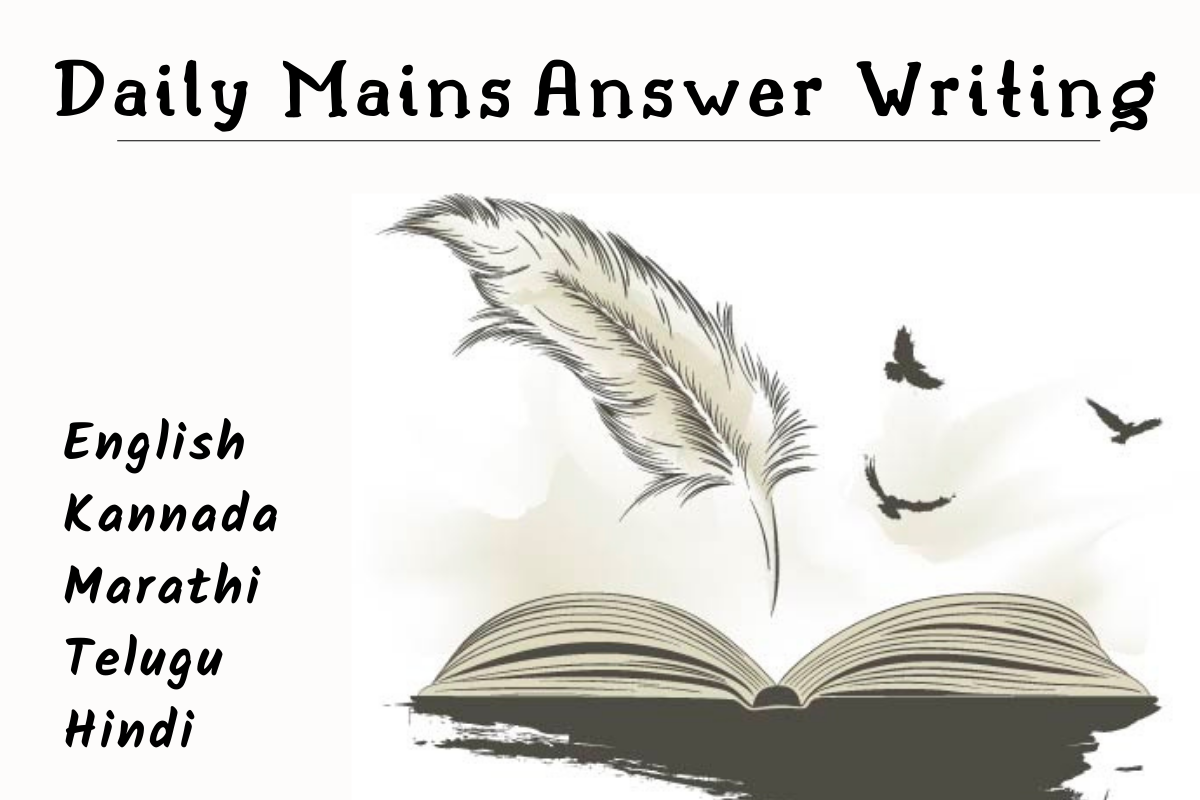Rapid growth in the economy throws up Central Vigilance Commission’s (CVC) challenges in
the fight against the menace of corruption that has been Janusfaced. Address the challenges in the system of Central Vigilance Commission. (10 marks) (150 Words)
The Central Vigilance Commission was established in 1964 by a resolution of Government of India
following the Santhanam committee recommendations, the apex body for prevention of corruption in India.
It is a multi member body which is formed to inquire about or investigate the corruption charges on central government, and review progress of applications pending with the competent authorities for sanction of prosecution under the Prevention of Corruption Act,1988.
There are few challenges being faced by the commission which raise
apprehensions:
There is no or little transparency in the appointment of CV officers.
It has only been an advisory body on the corruption charges
It does not have adequate resources in terms of funding,
sanctioning criminal prosecutions for offences committed by public officials
Public disenchantment with anti corruption mechanisms as there is a lot of delay in convictions,
There has been a considerable deviation from the commission report by various ministries which leaves the report and its advice falling on deaf ears.
Even though CVC has several complaints, there are a lot of pending cases that make the commission overburdened.
Anonymous and pseudonymous complaints are affecting the efficiency of CVC.
Frequent changes in nature, and tenure of office by the central government tarnishes its image, and dilutes its powers and functions which leads to the loss of morale among the staff. Therefore, it is imperative to see CVC as one of the most important offices in India by offering it autonomy and
granting Constitutional status.
4. To what extent, in your opinion, has the ideal of Constitutionalism been transformed into its functional reality in the present times? Explain (10 marks) (150 Words)
Constitutionalism means the limited government which explains that the powers of executive and legislature are limited and not controlled or arbitrary.
It is the Primary edifice on which democracy stands.
The ideal of constitutionalism in the modern times is being thoroughly Practised, Exercised in the form of Judicial review and Judicial activism.
The extent of constitutionalism is felt through the Hon’ble Supreme court judgements in its verdicts over ban on firecrackers during Diwali, quashing farm laws and also making the National anthem in theatres a mandatory affair to in still patriotic sense and oneness.
Basically, constitutionalism is the sine qua non for a vibrant democracy in which it abhors absolutism. (Maru Ram vs Union of India).
“Power Corrupts and absolute power corrupts absolutely”. If it vested, it would turn into an authoritarian, oppressive government.
It has transformed into functioning reality through: A written constitution embeds Constitutionalism. Independent Judiciary with the powers of Judicial review under Article 13. Example: NJAC Act, 2015, farm laws Act, 2020, Committee on Pegasus Spyware etc.
Doctrine of Separation of Powers being strictly followed as was upheld in the I.R. Coelho vs
State of Tamillnadu by opening up Judicial review for the subjects in the 9th schedule.
Fundamental rights of the people cannot be abridged or taken away. For example: Right to privacy being upheld in the KS Puttaswamy case to curtail the “surveillance” government.
Decentralisation of powers by enacting the notion of ‘local self government’,’ grassroots democracy’ through 73rd and 74th amendment acts by constitutionalising the Panchayat system.
Free and fair elections by the election commission of India by reforming the process of elections keeping in view the changing socio-economic dynamics. Example: NOTA, Proxy ballot system etc.
These are the few Principles on which the functional reality of constitutionalism can be achieved. Mere existence of a Constitution does not ensure constitutionalism. It is the political maturity and traditions of people that import meaning to a Constitution which otherwise embodies political hopes and ideals.

